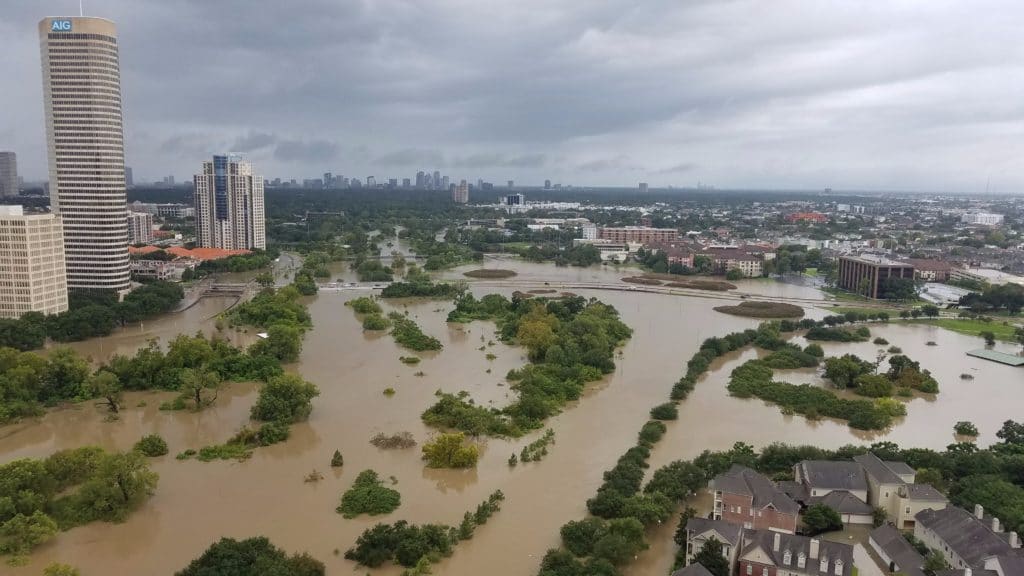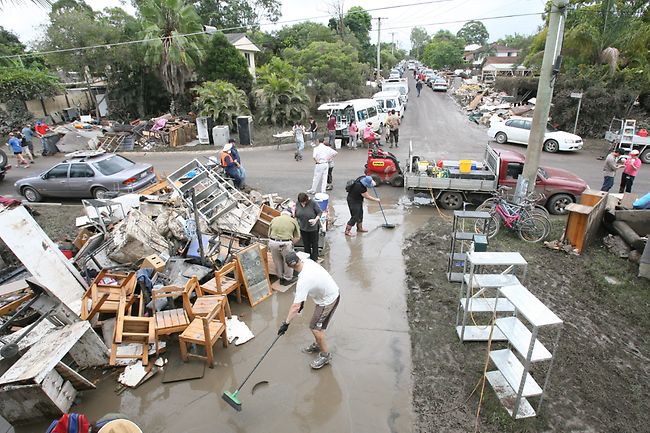Real Steps you Can take Ahead of the ‘Rainy Days’
It rarely matters what area of the country you live in; floods (caused by rain, hurricanes or other natural elements) can happen virtually anywhere across the United States. The causes of floods vary dependent on circumstances like overflowing dams, coastal storm surge, or even an overflow in a local water waste system. You must have a flood emergency plan.
No matter the cause, flood damage can have a lasting and powerful impact on your home, your belongings, and your family members. Because we are all at risk for a flood emergency, here are a few things you can do to keep your family and your home as safe as possible during a flood.
Basic Safety Tips
When preparing for a flood, there are a few basic safety tips that one should know. Be sure to discuss each and every one of these with your family members,.
- Always avoid walking or driving through high flood waters. Often times, there are tree branches or other debris that could cause serious injury.
- Do not drive over bridges that have high flood waters underneath them. The flood waters may be eating away at the structural foundation of the bridge, and it could collapse.
- Remember that 6 inches of water is enough to knock a human down, and a foot of water is enough to wash away a motorized vehicle.
- If there is a flash flood warning in your area, immediately seek shelter and move to higher ground. Abandon your vehicles if you have to, but do your very best to never enter flood waters!
- If you are camping or near a river (or a dry creek bed) when it begins to rain, you should immediately pick up and move to higher ground. Areas like these can flood quickly (and without warning) so it is best to plan ahead accordingly.
Those in downtown Houston TX most likely never thought they would have to deal with a flood. 2017 Flood shown.
What Should I Do?
If a flood is expected to hit in your area, take note of the advisory. There are two kinds of advisory warnings that could affect (and be mentioned) in your area. Keep reading to see the two advisory warnings broken down, and what you should do to keep your family safe in instances like these.
Flood Watch:
A flood watch is put out to warn citizens in the area of a potential damaging flood. A flood may not occur, but due to the weather conditions in your area, one might be likely. Stay prepared by knowing your evacuation route should it be necessary. If you haven’t already, put together an emergency kit with cash, money, food, water, and other necessities. Prepare your home for a flood by moving important items to the highest point in your home, and disconnect any plugged-in appliances. Sometimes, you will be instructed to turn off the gas and electricity to your home. This is to prevent fires and explosions, so plan accordingly!
Flood Warning:
If you hear a “flood warning” being broadcast over your radio system, things are getting more and more serious. A flood warning is used to alert the public of an coming flood that will occur, or even is occurring. If you get word of a flood warning in your area, it’s extremely important that you get to high ground immediately. Follow any evacuation procedures should they be recommended, and always do your best to stay out of the flood waters. Remember that just 6 inches of moving water can be enough to knock down a fully grown adult.
After the Flood:
Though it can be tempting to head immediately home to inspect the damages after a flood, you shouldn’t do so until you have been directed by the authorities. Once you have been given the okay to return home, make sure that you are wary of walkways as floodwaters can erode concrete and asphalt; causing damages. Again, do not walk or drive through remaining flood waters. Additionally, one should avoid walking through standing water as it may be charged with electricity. Keep yourself safe by staying out of the water and away from your home until you are instructed to do so. Always photograph any damage caused to your home during the flood for insurance purposes., chances are they are going to be a pain to work with.
Everything must come out of the home and dry. It takes a community and volunteers to recover from a flood
Here are some tips and tricks for flood safety planning that you should know:
- Know the risk of flood in your area. Do you live in a sandy area, or perhaps closer to sea level? Statistically, that makes you at more of a risk for flood damage.
- Make sure that you know the local emergency plans. What is the designated evacuation route? Where is the highest point of ground that could be easily reachable in the event of a flood?
- Always have an emergency kit stocked (with an Earthquake as well) with 3 days worth of food, water, clothing, and money. Change out the items in the kit regularly so they can be consumed or used if needed.
- Purchase flood insurance if needed. This can protect your home (and all of your belongings) in case of flood and water damages.
- Always keep a battery powered radio available so you can receive news and any other developments pre (or post) flooding.
A flood emergency can be terrifying, but having a plan set in place can ease those worries and make you feel like you are ready for any kind of natural disaster or event. Prepare for a flood with the tips and tricks throughout the article to better keep your home and family safe in the event of an emergency. Always check with your local authorities for evacuation routes and recommended “safe places” in the event of a flood.
If keeping your home and family safe is something that matters to you, consider investing in a home alarm or security system. Many security systems offer a flood sensor for light floods. We understand that choosing (and purchasing) an alarm can seem like an overwhelming task, but we’ve done the hard work for you! Use this list from Alarm-Reviews to determine with home alarm system is the best for you!
Latest Posts
- 3 Ways to know your Alarm System is Outdated
- Vivint vs ADT
- 7 Best Outdoor Motion Sensor Lights for Homes
- Top Home Security Systems in Atlanta, GA
- How to Cancel Your Alarm Contract

William is a tech buff and former corporate security officer turned cybercrime analyst. Computers have few secrets left for him, but home security and alarm systems… Well, those have plenty of secrets for their users, which William is now uncovering and explaining. His articles on home security helped many people take the matter seriously, invest in highly performing systems, and avoid becoming victims of burglaries.



Shatiqua Jameson says
Great tips but in my experience after having been a part of a flood is that there is no real preparedness you can do as it hits so fast. It’s good to have things ready to grab quick (first aid or 72 hour kits) but aside from that the water has it’s own will and you being prepared isn’t about to stop it.
Jasmine Tahj says
That’s true Shatiqua, the water has it’s own will but it really does help if you at least get yourself informed if possible of a flood coming as this can aid you to going to the nearest evacuation center right away. I’ve also been a victim of a flood myself and it really was helpful that we were able to evacuate right away and bring out the emergency kit we prepared.